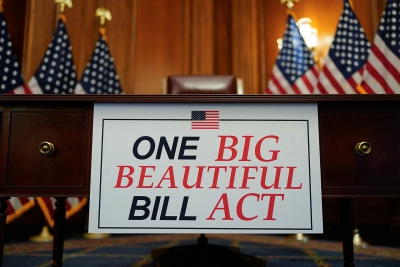From now on, ICE employees can enter schools, churches, and hospitals to arrest undocumented immigrants.
On Tuesday (January 21st), the U.S. Department of Homeland Security (DHS) issued a statement: U.S. Immigration and Customs Enforcement (ICE) will be allowed to carry out enforcement actions in and near places including schools, churches and hospitals.
This decision ends the US government's policy of avoiding law enforcement in "sensitive areas" since 2011. Many undocumented immigrant families are worried and beginning to consider whether to continue sending their children to school.


01 Churches and schools are no longer “sanctuaries”
On Tuesday (January 21st), Benjamin Huffman, acting secretary of the U.S. Department of Homeland Security (DHS), said in a statement that U.S. Immigration and Customs Enforcement (ICE) will be allowed to carry out arrest operations in and near places including schools, churches, and hospitals.

Tom Homan said in an interview, "Undocumented immigrants with criminal records, especially those who pose a threat to public safety, are priority targets for enforcement operations."
"But if sanctuary cities protect them, then we have to go out and find them in the community. When we look for these people and find other people who are here illegally, we will also take enforcement action. This administration will strictly enforce immigration laws. This government will strictly enforce immigration laws. The Immigration and Nationality Act does not stipulate that only those who commit serious crimes will be deported."

Regarding the details of repatriation to the country of origin after arrest, Homan explained, "If the country of origin is unwilling to accept them, we may place them in a third country."
Although ICE did not disclose where the first batch of raids will be carried out, officials revealed that they may target some major cities, including New York, Chicago, Los Angeles, Denver and other areas where undocumented immigrants are very concerned.

02 The school is working hard to appease students and parents
An immigration policy expert has expressed concern that increased immigration enforcement will have a "chilling effect" that could make some families fearful of sending their children to school.
Carmen, from Mexico, said after hearing that the government had lifted the policy banning arrests in "sensitive locations," that despite school officials' assurance that the school was safe, she still felt trembling when she took her 6- and 4-year-old grandchildren to school on Wednesday.
"I can't imagine what would happen if they did this in school. But at least I know that the school is on the side of the parents and has promised to contact us as soon as possible if the school is unsafe," Carmen said.
Many schools said they have received constant calls from parents recently who are worried that immigration officials will forcefully enter the school.
"I can't tell you how many parents came to me today, asking what they can do? They're scared and the kids are scared," said one parent coordinator.
According to the Migration Policy Institute, an estimated 733,000 school-age children are currently in the United States illegally. There are many more children whose parents have no legal status, although they themselves are U.S. citizens.

03 California says it will take action to protect students
The change in federal policy sparked an outcry among California government officials and school leaders, who denounced the policy.
Attorney General Rob Bonta recommended to California schools an updated guide issued by his office in December that outlines how school staff should handle requests from the U.S. Immigration and Customs Enforcement (ICE).

The guidance tells schools that if ICE agents have only an administrative subpoena, rather than a subpoena signed by a judge, the school is not obligated to let them view student records and can simply refuse.
In addition, the guide also reminds schools that in accordance with federal law, schools must strictly abide by regulations and must not disclose students' personal information without obtaining parental consent.
Alex Traverso, director of communications for the California State Board of Education, said: “Schools should be places of safety and must not be places that breed fear. Every child has the right to learn and grow in an environment free from intimidation and threats. California will go all out to take all necessary measures to protect our students.”
The California Department of Education also sent a letter to county and school district superintendents and charter school administrators on Tuesday (January 21st). The letter prepared some resources for immigrant students and their families, and also reminded everyone to understand their rights.

Many school districts, including the Los Angeles Unified School District and the San Francisco Unified School District, have also reiterated the "Shelter Resolution" and sent letters to students' families to explain their rights and share relevant legal resources.
Earlier this month, 17 Santa Clara County superintendents and school board members signed a letter stating that schools will continue to support immigrant students and their families.
The letter also specifically reminds the public of the 1982 Supreme Court decision in Plyler v. Doe: all children in the United States, regardless of their own or their parents’ immigration status, have the right to receive a public education.
A spokesman for the Los Angeles Unified School District said the district has begun training all staff on how to respond when federal immigration officials show up at schools. In addition, students will be issued cards outlining their rights if they encounter immigration officials.
"We have a legal, professional and ethical responsibility to protect the rights of our students and employees," the email reads. "This includes the privacy rights under FERPA (Family Educational Rights and Privacy Act), and state and federal constitutions. Among the rights stipulated in it are the right for all students to receive free public education.”
"School staff will not collect or disclose immigration status information of students and their families. Since 2017, the Los Angeles Unified School District has established rules and will not proactively cooperate with federal agencies in immigration enforcement-related actions."















